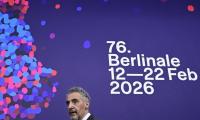Pakistan – from promise to delivery
Random thoughts
May 28 not only symbolises our national determination to protect every inch of the territorial and ideological integrity of our beloved country, but it also speaks volumes for the dedication and professional competence of our scientists, engineers and technicians. A country with a dismally low literacy rate and a small number of research scientists, with limited facilities at their disposal, it still proved to the world that it could turn the tables – and it did turn the tables.
The event, nevertheless, leaves much food for thought. It calls for us to stop for a while and re-assess ourselves – our abilities, our potential and our achievements. The challenge for Pakistan today is to travel the vast distance between its performance and its promise. On the one hand we have all the ingredients to become a dynamic country: we produce good crops, possess our mineral wealth and also have the manpower. The sparkling waters of our rivers enrich the fertility of our plains and the hardworking peasants, labourers and workers of our nation put in every effort to produce the best. On the other hand, we are one of the poorest countries of the world: the most illiterate, the most malnourished and the least gender-sensitive.
We present a bleak picture of human development: nearly two-thirds of our total adult population and three-fourths of the adult females of Pakistan cannot read or write, a high percentage of children born in Pakistan have never been to school, the dropout rate at primary level is more than half each year and access to basic social services like primary healthcare and safe drinking water is denied to nearly half the population. Moreover, about 50 percent of the children under the age of five are malnourished, about 50 percent of our people live below the poverty line while another 30 percent live on the verge of it, 45 percent Pakistanis live in single-roomed houses, while many do not even have this facility and are even worse off and more than 50 percent of the population have no notion of sanitation.
There is also an alarming situation in the dismal scientific and educational scenario. Of course we all know that progress can never be attained without educating our people. We also know that science and technology are the leaders of the future, but we still spend very little on human resource development. For example: for every dollar spent in the social sector, five are spent on defence and debt servicing, almost nothing on the health sector, less than one percent on scientific research and development and mere crumbs of our annual GNP on education. If we are not willing to invest in our people, we are doomed. We are outstripped by our neighbour, India, in almost all social indicators. Sri Lanka, with an almost equal per capita income, ranks higher than us on the annual UNDP’s Human Development Index.
Today, markets are the yardstick by which the power, size and influence of nations are judged and in global markets, science and technology rules. It is no wonder then that Pakistan lags far behind. We produce few people with technical skills and we are often stuck with technologies of the past. Our vocational and technical education programmes are inadequate, qualitatively poor and require sweeping reforms and extensive changes. Years of social and economic neglect from successive governments have made it necessary for these programmes to be revamped.
Let us not forget that research is the bedrock of change, science is the path to prosperity and technology is the key to success. We must equip ourselves with the latest research and development – these are the vanguards of an advanced and powerful society. An all-out effort ought to be made to create and help centres of excellence to engage in active research that could benefit our industry and boost our trade. Public/private partnerships should be promoted in setting up institutes of higher scientific studies since one cannot expect the government to do it alone in this demanding world of ours.
Sir Karl Popper, an eminent philosopher who died in London in 1994, said: “Next to music and art, science is the greatest, most beautiful and most enlightening achievement of the human spirit”. This demands a serious approach towards putting our science and technology house in order. A firm resolve on the part of our government requires framing of the national science and technology policy, keeping in view local needs and requirements. There is also a growing need for a national science and technology institution to streamline efforts and avoid duplication. Above all, priority should be given to scientists, researchers and engineers while framing policies.
Similarly, we have to restructure our basic and higher educational systems, which currently fail to meet the demands of our time. An all-out effort should be made to acquire the maximum level of literacy on a mass-scale and then encouraging research at the university level. An anonymous quote of great relevance states: “The prosperity and strength of a nation is a reflection of the competence of her engineers”.
In the words of philosopher Alfred North Whitehead: “In the conditions of modern life, the rule is absolute: the race which does not value trained intelligence, is doomed. Not all your heroism, not all your social charm, not all your wit, not all your victories on land or at sea, can move back the finger of fate. Today we maintain ourselves, tomorrow science will have moved over yet one more step and there will be no appeal from the judgement which will be pronounced on the uneducated.”
It all comes down to our rulers. In the past they have reneged on their promises. They have never acted on what they said or what they had promised during their election campaigns. It almost seems like lying and selfishness have become state policies and are accepted everywhere. There needs to be a drastic change in our thinking, and corruption, lying and inefficiency should not be accepted by the public. Politicians should be held responsible for reneged promises and maladministration, which are leading the country downhill.
Email: dr.a.quadeer.khan@gmail.com
-
 Space-based Solar Power Could Push The World Beyond Net Zero: Here’s How
Space-based Solar Power Could Push The World Beyond Net Zero: Here’s How -
 Kate Walsh Remembers Her 'Grey’s Anatomy' Co-star Eric Dane Following His Death At 53
Kate Walsh Remembers Her 'Grey’s Anatomy' Co-star Eric Dane Following His Death At 53 -
 AI Ad Wars Begin As Perplexity Snubs ChatGPT Advertising
AI Ad Wars Begin As Perplexity Snubs ChatGPT Advertising -
 Microsoft Copilot Bug Exposes Confidential Emails To AI
Microsoft Copilot Bug Exposes Confidential Emails To AI -
 Eric Dane Final Emotional Words Revealed After Tragic Death
Eric Dane Final Emotional Words Revealed After Tragic Death -
 Prince William 'furious' Regarding His Own Future After Andrew Arrest
Prince William 'furious' Regarding His Own Future After Andrew Arrest -
 Charli XCX Reveals ‘confusing’ Toll ‘Brat’ Popularity Took On Her
Charli XCX Reveals ‘confusing’ Toll ‘Brat’ Popularity Took On Her -
 Android Phones At Risk: PromptSpy Malware Exploits AI
Android Phones At Risk: PromptSpy Malware Exploits AI -
 Barry Manilow Gives Insight Into 'very Depressing' Doctor Visit As He Postpones 2026 Arena Tour Due To Cancer
Barry Manilow Gives Insight Into 'very Depressing' Doctor Visit As He Postpones 2026 Arena Tour Due To Cancer -
 Margot Robbie Opens Up About Imposter Syndrome ‘crisis’
Margot Robbie Opens Up About Imposter Syndrome ‘crisis’ -
 'Desperate' Sarah Ferguson Won't Go Down Without A Fight
'Desperate' Sarah Ferguson Won't Go Down Without A Fight -
 Prince William, Kate Face Major Challenge To Repair Monarchy Reputation After Andrew Arrest
Prince William, Kate Face Major Challenge To Repair Monarchy Reputation After Andrew Arrest -
 Hidden ‘dark Galaxy' Traced By Ancient Star Clusters Could Rewrite The Cosmic Galaxy Count
Hidden ‘dark Galaxy' Traced By Ancient Star Clusters Could Rewrite The Cosmic Galaxy Count -
 Eric Dane 'really Wanted To Talk About His Daughters' In His Final Netflix Interview Before Death
Eric Dane 'really Wanted To Talk About His Daughters' In His Final Netflix Interview Before Death -
 AI Superintelligence Race: Meta And Microsoft Back Rival Visions—Who Will Win?
AI Superintelligence Race: Meta And Microsoft Back Rival Visions—Who Will Win? -
 Chatbots Push Users Into ‘delusional Spirals,’ Experts Warn
Chatbots Push Users Into ‘delusional Spirals,’ Experts Warn



